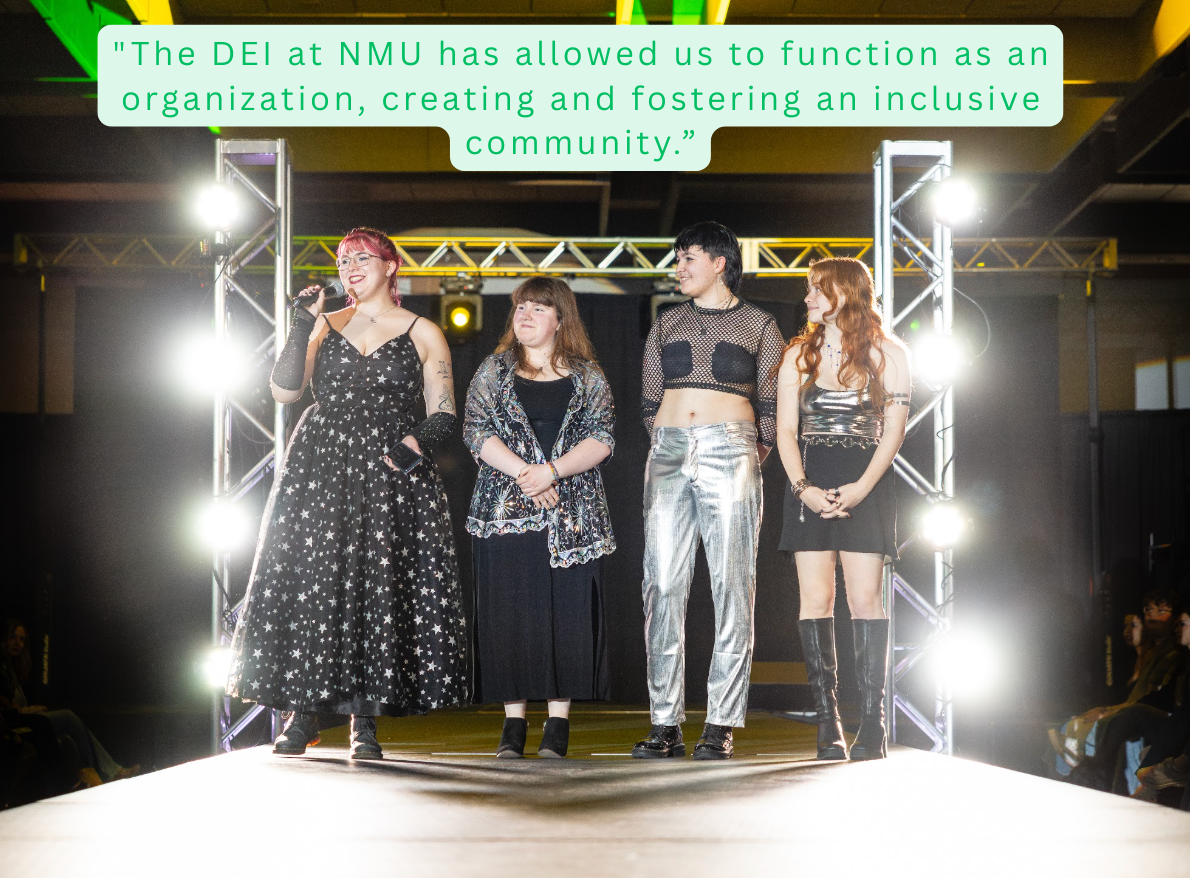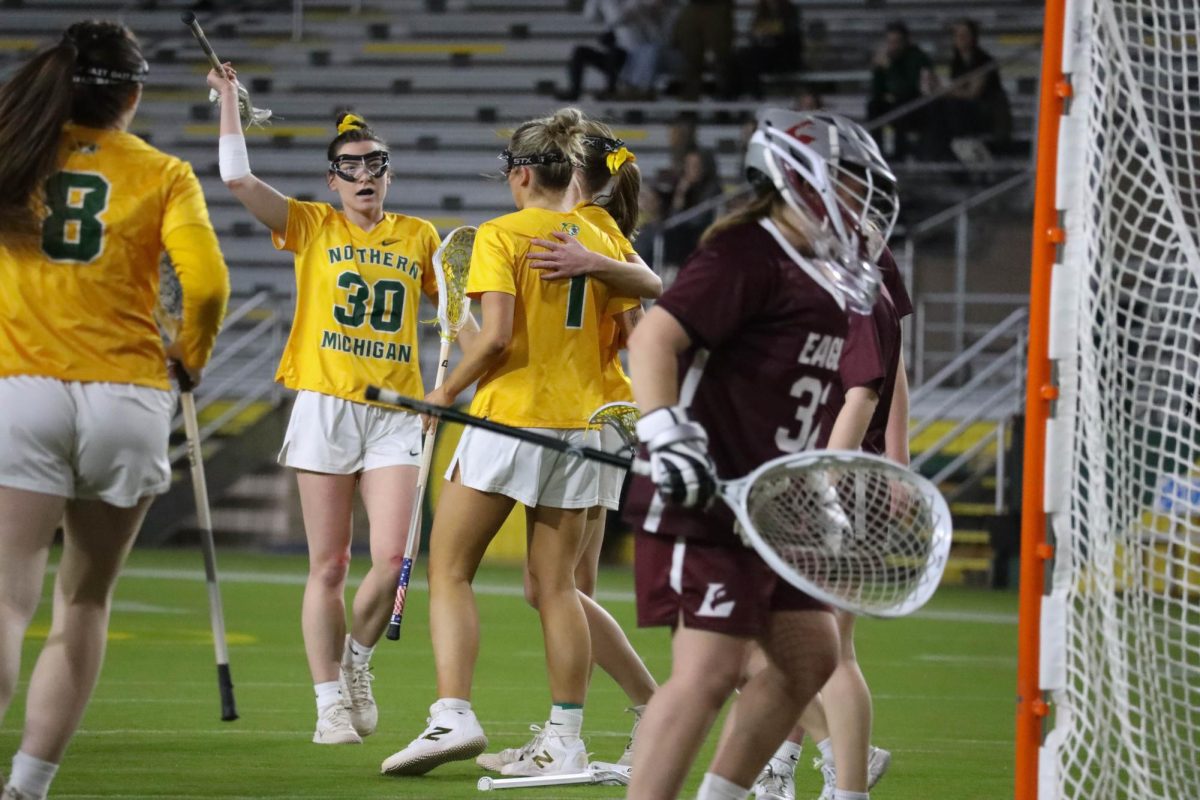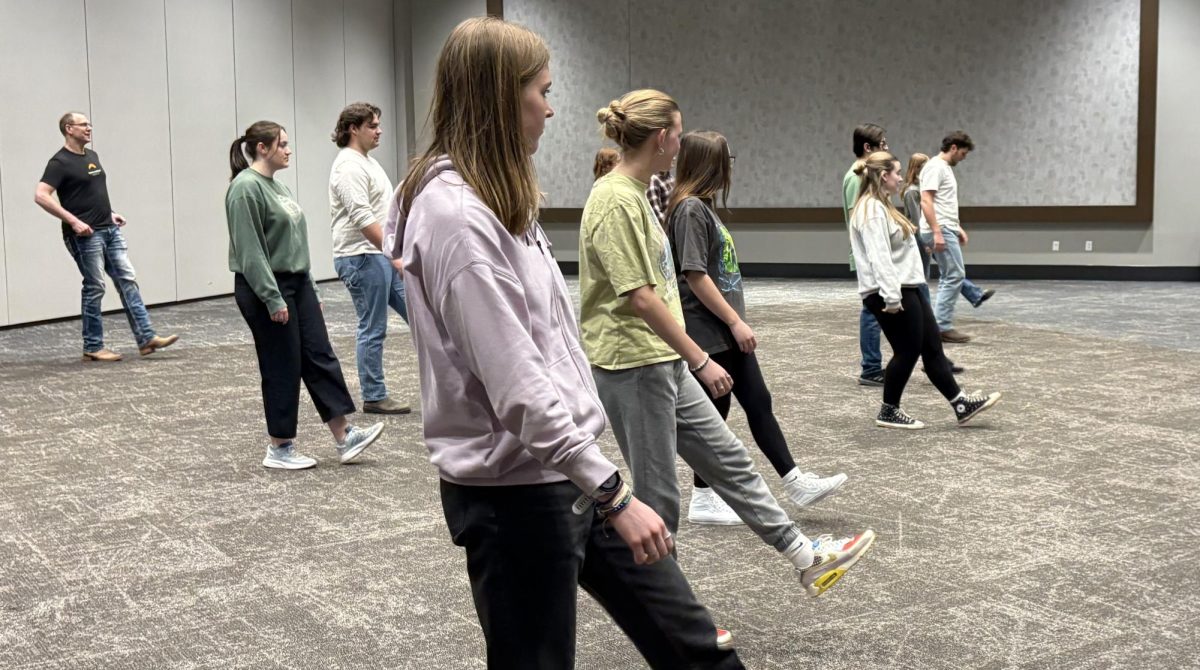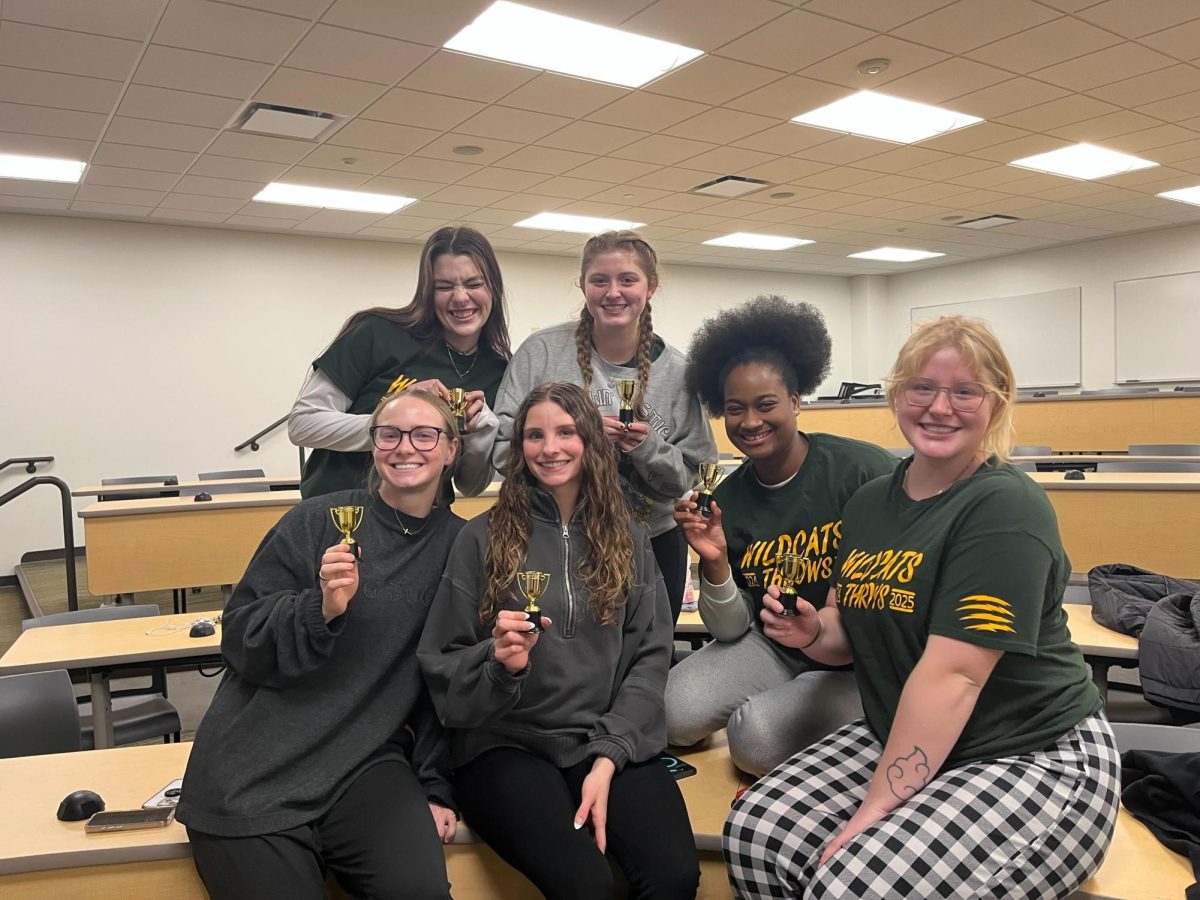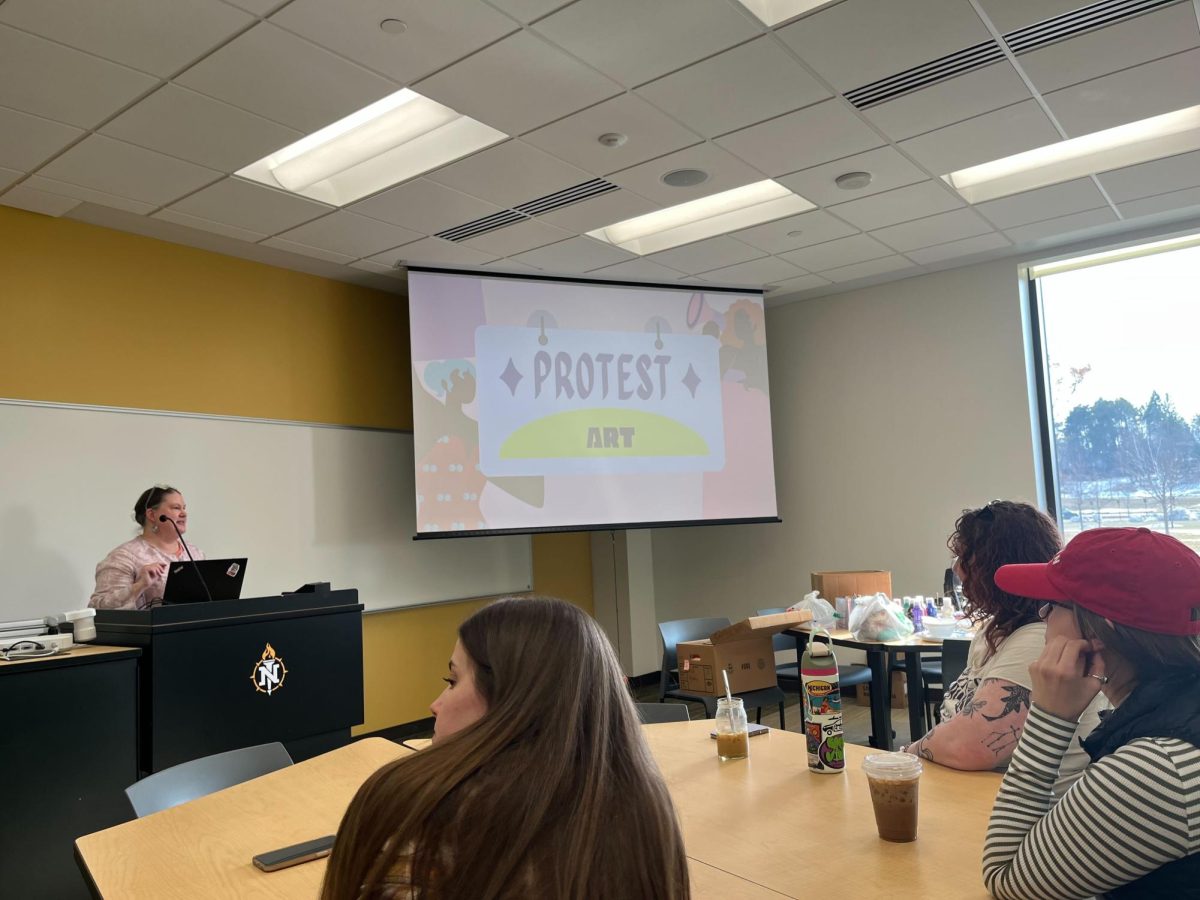On the first day of his second presidency, President Donald Trump signed an executive order to erase DEI across the government, titled Ending Radical And Wasteful Government DEI Programs And Preferencing. Since then, many Government Departments have removed Diversity, Equity and Inclusion from among its different departments and have even tried to force other administrations to do the same.
What follows is the reaction and response from the people of Northern Michigan University.
Derek Hall, NMU’s Chief Marketing Officer, was among the first to respond. As the voice of NMU on the professional level, he made this statement on behalf of the university.
“The Executive Orders recently issued by President Trump are under review by University leadership,” said Hall. “The Executive Orders contain a review period and the University will ensure its review is complete within the review period. This is a dynamic situation with further guidance expected as well as legal challenges to certain aspects of the Executive Orders. The University will follow developments closely.”
In response, many students felt this to be a very political answer coming from the university— one to save face and not react too hastily. Others felt it was a cause of concern, and is a scapegoat of the university for inaction.
“While the knee jerk reaction to this type of answer is an exasperated eye roll, I think we must look closer at this response,” said NMU Refugee Outreach Collective President Cole Edgcombe. “We can extrapolate that NMU has not decided to fold immediately and is instead trying to work for the best outcome. We can also extrapolate that the outcome is not something that can be shared because the landscape of these policies changes almost daily. This review period is clearly still in the works and while NMU must comply with the law, and they intend to, this does not mean they aren’t going to continue to do everything possible to change the outcome to best favor their students.”
“This is a very diplomatic response,” said Native American Student Association membership coordinator, Shelby Boggs.
“I find it to be very much in line with standard NMU communication that I’ve seen in my years here so far, ‘we’ll wait and see, but you’re on your own till then,’” said President of Tomorrow’s Voices and the Economic Students Association, and Treasurer to Reacting to the Past Club, Silas McNeally.
Nearly all felt Northern Michigan University should act, and show scared students they are protected and valued. They also though administration was realistic in terms of a direct response to the Executive Order.
“NMU can maintain and emphasize the importance of diversity on-campus,” said the Queers and Allies Executive Board. “It is important that DEI is included in all aspects of NMU, from housing, to careers, to student activities and organizations.”
“The difficult part of what NMU should do versus what it can do, is about realistic expectations,” said Edgcombe. “Dr. Tessman was correct when he states that a third of university funding comes from government subsidization. If the law demands that a university comply with these attacks or else lose government support, then we have no choice but to operate within the law. If we lose 60 plus million dollars of funding, NMU will be forced to close its doors which is a complete loss for all of its students.”
“The story is still being written in terms of the Executive Order,” said NMU President Brock Tessman at the Presidents’ Student Leaders Summit. “[But] we are going to follow the law, we are not going to jeopardize the university to break the law.”
Following the January Executive Orders many government responses to cut DEI came to be, all were shocking to witness. One of the earliest instances came from the Department of Defense, when the Department barred its employees from acknowledging Cultural and Celebration months such as Black History Month, Martin Luther King Jr. Day, National Hispanic Heritage Month and many more. This saw a shocked response from the diverse student organizations on campus.
“That is so frustrating,” said Black Student Union President MarLanaysia Rosser. “At the end of the day, it doesn’t make me any less black that I don’t have a month that is recognized by the government, but it is a thing that makes me feel more black.”
“Thus, visibility efforts such as Native American Heritage Month reminds mainstream American society that first and foremost, we as Native peoples are still here,” said Boggs. “Native American peoples refuse to be erased and assimilated from the minds and consciences of mainstream American society, and that is why Native American Heritage Month is important.”
“The groups of people these months celebrate have been historically underrepresented and directly attacked through laws being passed,” said the Queers and Allies Executive Board. “It is important to acknowledge the long histories these groups have in America, how the government wrongly treated them and celebrate their identities.”
“These are marginalized communities in the modern world which is a fact not many are willing to accept,” said Latinx Student Union President Lauren Melendez-Rivero. “Stereotypes still run rampant, minority groups are still racially profiled and rights directly affecting these groups are always the first to be attacked for political agendas. For our groups to have time to gather and give appreciation to each other strengthens our connections and lets us be proud of who we are in a country that has a habit of policing and judging our culture. It’s inherently human to share our personal experiences and these months are a wonderful way to do that.”
Another DEI attack from the Department of Defense was to remove photos and stories of specific photos related to DEI. Photos removed include a photo of the plane that dropped an atomic bomb on Japan in WWII, the first women to pass Marine Infantry Training and a WWII medal of honor recipient. Students called this blatant white washing, and the attempted erasure of history.
“This intentional removal can unintentionally fade important contributions from public memory,” said Criminal Justice Association President Kay Hintze. “The action of removing such dignified actions is insulting to the legacies of those removed and the battles they fought to have their stories told. Overall, erasure is counterintuitive to our nation’s tenets of liberty and equality, as well as our fixation on preparation for the workforce, especially in our ever-diverse society.”
“It’s infuriating and very disheartening to see,” said Melendez-Rivero. “These photos do nothing but inspire communities all over the US and reinforce the ‘American Dream’ that this country was supposedly built on. To remove monumental moments in our BIPOC history as a nation built on the backs of people of color is inherently un-American and downright shameful.
“Now you want to fit us into a box where only certain things are talked about,” said Rosser.
With the continuing of attacks on DEI, students and faculty are both uncertain of the future and it is not a stretch to say they are afraid. They watch as other colleges in the same state have done drastic changes to remove DEI.
“As a queer individual, I fear taking away DEI poses the risk of negatively reinforcing discrimination and exclusion; therefore creating even less safe spaces for marginalized communities,” said Hintze. “I fear that scaling back DEI might be the beginning of a broader movement to erase visibility and rights for marginalized communities like mine. Without the acceptance of all, it might be easier for policies and social attitudes to threaten and interdict certain rights and make my fears become reality.”
“Clearly universities as a whole are on notice,” Tessman said. “I am an easy sleeper… but not recently.”
The most common argument against DEI is that it is a form of discrimination. This argument can be found spouted by members of the public and White House administrators. Students at NMU find this argument to be false and misguided.
“That is absolutely insane,” said Rosser. “Its a slap in the face really, they want a seat at the table but don’t want to allow us a seat at the table… We are just trying to get in, we are not trying to exclude you. ”
“If it is violating laws to make a workplace or school a more inclusive space, then it’s time for the laws to change,” said the Queers and Allies Executive Board.
“I find the argument that DEI is ‘illegal discrimination’ to be a paradox,” Boggs said. “Americans should be outraged at the existence of systematic racism, discrimination and oppression rather than outraged at efforts aimed at forging more equitable opportunities for those who have been violently oppressed within this country.”
“A lot of people who claim DEI is illegal discrimination have a misconception on what DEI actually does,” Melendez-Rivero said. “I think it stems from a lack of education on the mission on DEI and they genuinely believe these laws were made to exclude them from opportunities when in reality that couldn’t be further from the truth..”
It seems there is a deep disconnect as to what people think DEI does, and who it caters to. As it seems part of the public and the federal government, some believe the college’s DEI offices alone caters to only POC students. Some think it gives them handouts when in reality Equal Opportunity Offices guarantee fair treatment of students, and are the actual bodies that hand out scholarships. Other students have a lot to say on this public and federal disconnect.
“Most people misunderstand that DEI attacks are an act of overall erosion of the rights and freedom of everyone.,” Hintze said. “DEI’s core values are ensuring fair access, fostering diverse perspectives and the creation of environments where any person can thrive… The attacks and loss of DEI is not just a problem for marginalized communities, it will chip away at the freedoms, protections and opportunities that benefit our society as a whole.”
“The greatest lack of understanding regarding DEI attacks comes from the number of Americans who have no idea how they have benefited from DEI,” Edgcombe said. “A simple example that comes to mind is policies regarding the equal treatment of women in spaces under DEI policy. It seems that many supporters of Anti-DEI rhetoric tend to forget that their own mothers, sisters, wives and daughters are currently protected by DEI.”
“Many of the people who voted for these cuts are below the poverty line, receiving state or federal aid or working with services funded by grants that are soon to be cut,” McNeally said. “When a minority group becomes marginalized the next strata of society falls on the block next, and based on my experience growing up in a poor rural community, it’s the rural poor who are next to be betrayed.”
NMU’s own Office of Diversity and Inclusion has done a great amount for student’s and student organizations to help foster community in student groups that don’t have one. This help takes the form of special inclusion events, donation drives, resources and much more that are able to be accessed by anyone.
“Student org wise I would say that they give candy for students to handout during any tabling events, they give out mini grants to help cover event costs,” Rosser said. “As for students there are jobs available, its a hangout space and a place to talk to people if you need to and they offer free printing.”
“The DEI at NMU has allowed us to function as an organization, creating and fostering an inclusive community,” said the Queers and Allies Executive Board.
“Having DEI on NMU’s campus has made me and many other students feel valued and supported, which is crucial for our growth as students and individuals,” Hintze said. “The resources, mentorship and spaces that encourage these opportunities help connect students from various backgrounds.”
The disposition of NMU can be boiled down to resilience and reliance. The students and faculty may be afraid of what is to come an what is at stake, but during this time reliance can be found as students and faculty band together and face the future with bold and brave hearts set on action.
“If this pattern is allowed free rein, it will kill our nation’s ethos and then it will come for our people,” McNeally said.
“What will not change is the DNA of NMU, which is open doors,” Tessman said. “I will not trivialize this moment in history.”
“I would simply like to encourage students to start confronting the nature of change within our country. We have a habit of getting isolated in our university and our niche groups of interests but we must all remember that we are in this together,” Edgcombe said.


